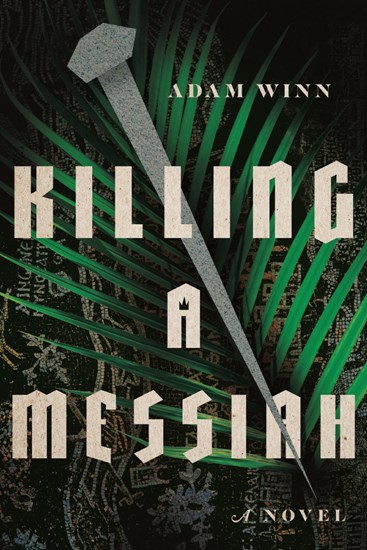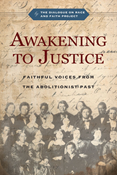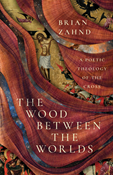
|
Killing a Messiah
paperback
|
- Length: 248 pages
- Dimensions: 5.5 × 8.25 in
- Published: January 14, 2020
- Imprint: IVP Academic
- Item Code: 5277
- ISBN: 9780830852772
-
Other Retailers:
Amazon*
*affiliate partner
-
ebook
As Passover approaches, the city of Jerusalem is a political tinderbox. Judah, a resistance leader, plots to overthrow the Roman occupation. Eleazar and his father, the high priest Caiaphas, seek peace in the city at all costs. Pilate, the Roman governor, maneuvers to keep order (and his own hold on power). Caleb, a shopkeeper, is reluctantly caught up in the intrigue. When rumors start spreading about the popular prophet Jesus, hailed by many as the Messiah, Roman and Jewish leaders alike fear unrest and violence during the upcoming festival. Then, in the midst of this tension, unexpected alliances emerge.
In Killing a Messiah, New Testament scholar Adam Winn weaves together stories of historical and fictional characters in a fresh reimagining of the events leading up to Jesus' execution. Based on what we know of the first-century context, Winn's narrative offers compelling explanations for gaps in the Gospel accounts. The social, political, and religious realities of Jesus' world come to life and shed new light on our reading of the biblical texts.
In a city full of political entanglements, espionage, and competing interests, the blame for the crucifixion is complex and can't land on just a single party. It takes more than one to kill a messiah.
"For centuries, Christians have been taught that the only possible reading of the Gospels was one in which the Jews, the enemies of Christ, are responsible for his death. Winn, using those same sources and informed by the best of contemporary scholarship, has produced a plausible alternate narrative of what might have occurred during that famous Passover week and demonstrates that anti-Jewish interpretations of the New Testament are not inevitable."
"As a filmmaker, I gravitate toward page-turning tales of complex characters caught in high stakes, political intrigue. Adam Winn offers readers a fresh take on the crucifixion of Jesus through rigorous research and astute imagination. Killing a Messiah is a brilliant exploration of the ultimate historical hinge point."
"Killing a Messiah—this is an easy read, but also a highly informative one that displays Adam Winn's solid grasp of the social, political, and historical realities at work in the complex of events surrounding Jesus' execution. The Gospel accounts leave so many questions unexplored—sometimes about who did what, but especially about how and why Jewish and Roman leaders acted as they did. What motives led to Jesus' crucifixion? How was the Jewish council able to determine so quickly that Jesus deserved death? Why weren't Jesus' disciples rounded up along with Jesus when he was arrested? How do we explain Judas's role in these affairs? And so on. Winn's delightful and well-crafted story imagines what was going on behind the scenes even as it respects the Gospel accounts and the historical issues they raise."
"With a sure grasp of first-century religious and political realities, Adam Winn brings the events surrounding Jesus' execution vividly to life. What emerges is a story of manipulative authorities, greedy informers, severed friendships, but ultimately hope in the figure of Jesus himself—all told with the verve and panache of a novelist."
"Adam Winn uniquely and subversively contributes to historical Jesus research through this compelling story about the events leading up to Jesus' death. Through the eyes of a varied cast of characters, Adam illuminates Jesus' historical, social, and political world and challenges some conventional understandings of the Gospels. If you are interested in engaging your theological students, pastors, or congregations in issues and questions surrounding the study of Jesus and the Gospels, you should get this book."
"Killing a Messiah is, first and foremost, an engrossing read. Once I started it, I resented having to put it down for other tasks or for sleep! But it is also a highly informative read. Dr. Winn immerses his readers in a web of plots plausibly driven by the complex political dynamics at work in Judea in 29 CE, dynamics often lost on the casual reader of the Gospels. He advances, in narrative form, a bold hypothesis concerning the backroom maneuverings behind Jesus' arrest, trial, and condemnation that does justice both to the public view of these events preserved in our Gospels and to the character of the authorities known from other sources. Perhaps his greatest achievement is his stunningly well-rounded and sympathetic portrayal of figures like Caiaphas and Pilate. This novel will certainly enrich, and quite possibly challenge, your understanding of the most critical week in human history."
CONTENTS
Acknowledgments
Prologue
1. A Fragile Peace
2. An Approaching Storm
3. The Preparation
4. The Crisis
5. The Plot
6. The Ruse
7. The Execution
8. The Aftermath
Author's Note
The Death of Jesus and the History of Anti-Semitism
Questions for Reflection and Discussion
Notes













